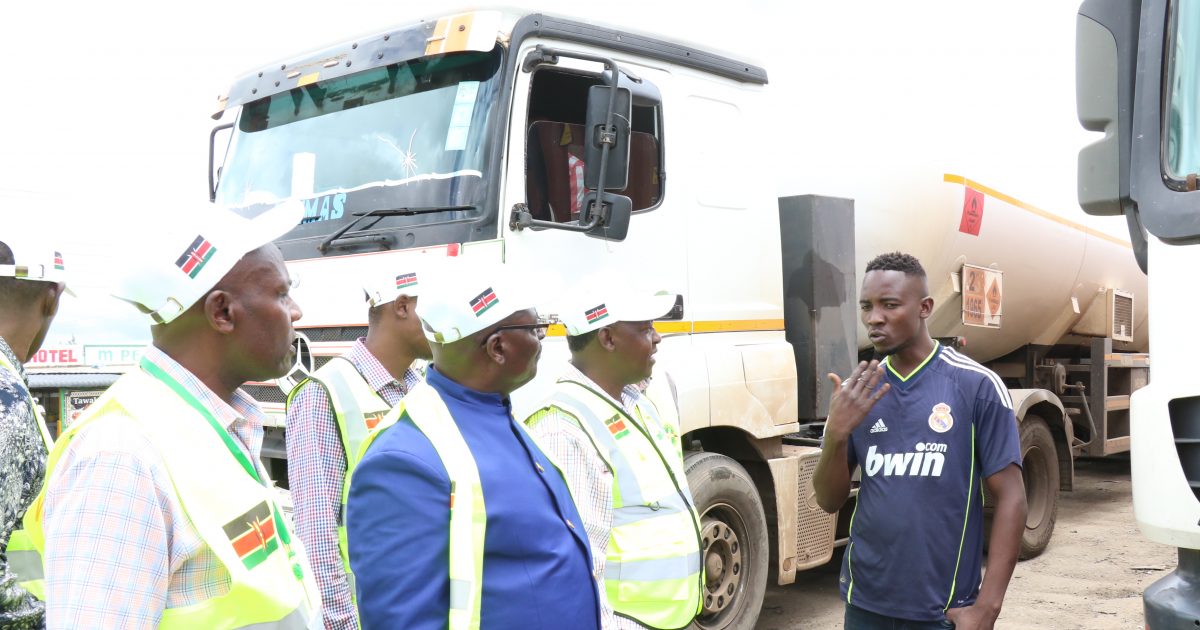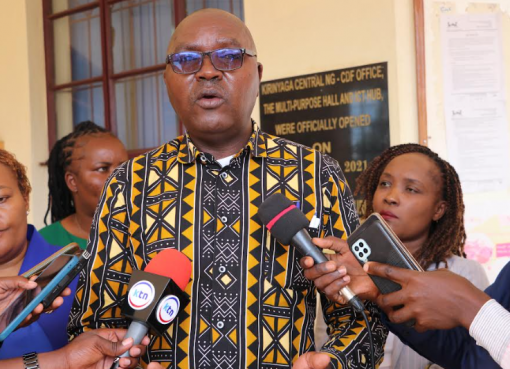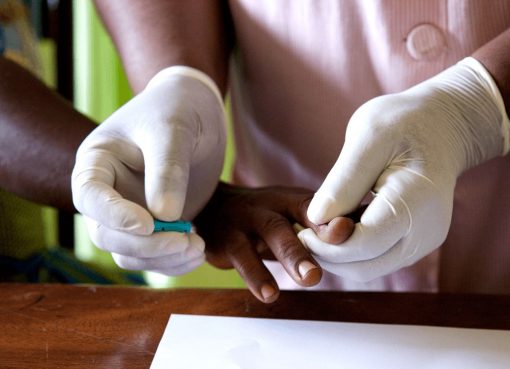A road safety lobby group has indicated that appropriate road engineering designs and data-driven enforcement of traffic rules need to be accorded extra attention to enhance the safety of all road users.
The Kenya Traffic Rescue Mission (KTRM) is further pressing for the development of a national speed management policy, the use of cutting-edge technologies in compliance assessment, inter-agency system integrations, and stakeholder engagement with parties within the transport sector.
KTRM Technical Director Mr. Paul Kabua has further called for speedy implementation of the Intelligent Road Transport Management System, installation of speed cameras along major corridors, black spot mapping, and putting up road signs.
Mr Kabua said Kenya needs to introduce a demerit point system to encourage safe and responsible driving.
A demerit system involves motorists accumulating demerit points on their driving licenses for committing certain traffic violations and offenses.
“We are appealing to the government to put in place a system where the more traffic violations or offenses that are committed – such as speeding, overlapping, and Driving Under the Influence of alcohol (DUI), the more demerit points that are electronically accumulated on a person’s driving license,” he said.
Mr Kabua explained that depending on the total amount of demerit points accumulated within a specified period, a motorist’s driving license could be suspended or canceled as well as other consequences.
He suggested that 10 percent of the country’s budgetary allocation be reserved for road safety awareness campaigns.
Mr Kabua claimed that unplanned speed bumps along the Nairobi-Nakuru highway are to blame for the rising cases of fatal accidents on the road.
He claimed that road designs and careless driving have also played a part in accidents that have claimed scores of lives.
Kabua, who spoke to journalists at the Salgaa stretch, identified Karai, Kinungi, Kayole, Morendat, Marula, Ngata, Sobea, Salgaa, and Murinduko as some of the black spots on the highway.
“We are deeply concerned with the rising cases of accidents as this highway has turned out to be a killer road, with fatal accidents being reported daily. We have come to learn that some newly erected bumps are causing accidents. This highway should be expanded to reduce the accidents,” he pointed out.
Mr Kabua pledged that from next week, KTRM with other stakeholders will embark on road safety campaigns targeting motorists and school children.
“Under this program, we shall provide motorists, cyclists, and students with reflective jackets and bangles which will come in handy in promoting road safety awareness initiatives,” he said.
He added, “We shall be working closely with traffic police, learning institutions, cyclists, and motorists in making sure that our roads are safe,”
Long-distance truck Salim Cheboiwa blamed careless overtaking for increased road carnage.
“Some of the accidents can be avoided if drivers are careful on the roads, with many of them overtaking recklessly leading to fatal accidents,” he said.
Cheboiwa called for laying emphasis on attitude and behavioral change and the introduction of stiffer custodial sentences for serial offenders, which he said are likely to achieve a lot more than haphazardly mounting roadblocks that he alleged act as conduits for corruption.
“Exhorting motorists and passengers to appreciate the role they play in making the roads safer will help curb the fatalistic attitude exhibited by many of them,” stated the driver.
George Kobi, also a truck driver, called for the adoption of automated driver training and the use of simulators to facilitate effective training and testing of drivers.
He petitioned road planners to, among other things, design roads to move traffic at appropriate speeds, apply design techniques to control speeds and improve visibility at intersections, and physically separate highways in urban areas from pedestrians.
Mr Kobi indicated that roads where accidents repeatedly occur should be redesigned for safety.
“The Salgaa area along the Nakuru-Eldoret road is the best proof that a redesign can significantly reduce traffic accidents. Tougher penalties should be imposed on careless drivers to curb that tendency while the National Transport and Safety Authority (NTSA) should take its work more seriously. There is no doubt that speed remains one of the single most serious road safety challenges in Kenya,” he stated.
Mr Kobi added “Evidence shows that lower speed limits in urban areas and school zones reduce the risk of fatalities, and injuries and ensure the safety of vulnerable road users, including pedestrians, cyclists, children and boda boda riders,”
KTRM Secretary Mr Stephen Ndolo urged private entities to join the government’s initiative of reducing accidents.
“This is a big step as we strive to work on making our roads safe,” he said.
He observed that most accidents are a result of human error. Mr Ndolo said that road construction calls for a rethink.
“Many roads are narrow, not taking into account the exponential growth in vehicular traffic. Statistics indicate a greater percentage of accidents are head-on-collisions. There is no better argument than this for building dual carriageways, especially at known black-spot areas, to minimize these incidents,” he pointed out.
Mr Ndolo went on “While dual carriageways do not necessarily stop accidents, often, the frequency is spaced out and, in any case, fewer deaths have been reported. The government, citizens, and stakeholders need to exercise individual responsibility in ensuring road signage is not destroyed.”
By Anne Mwale





